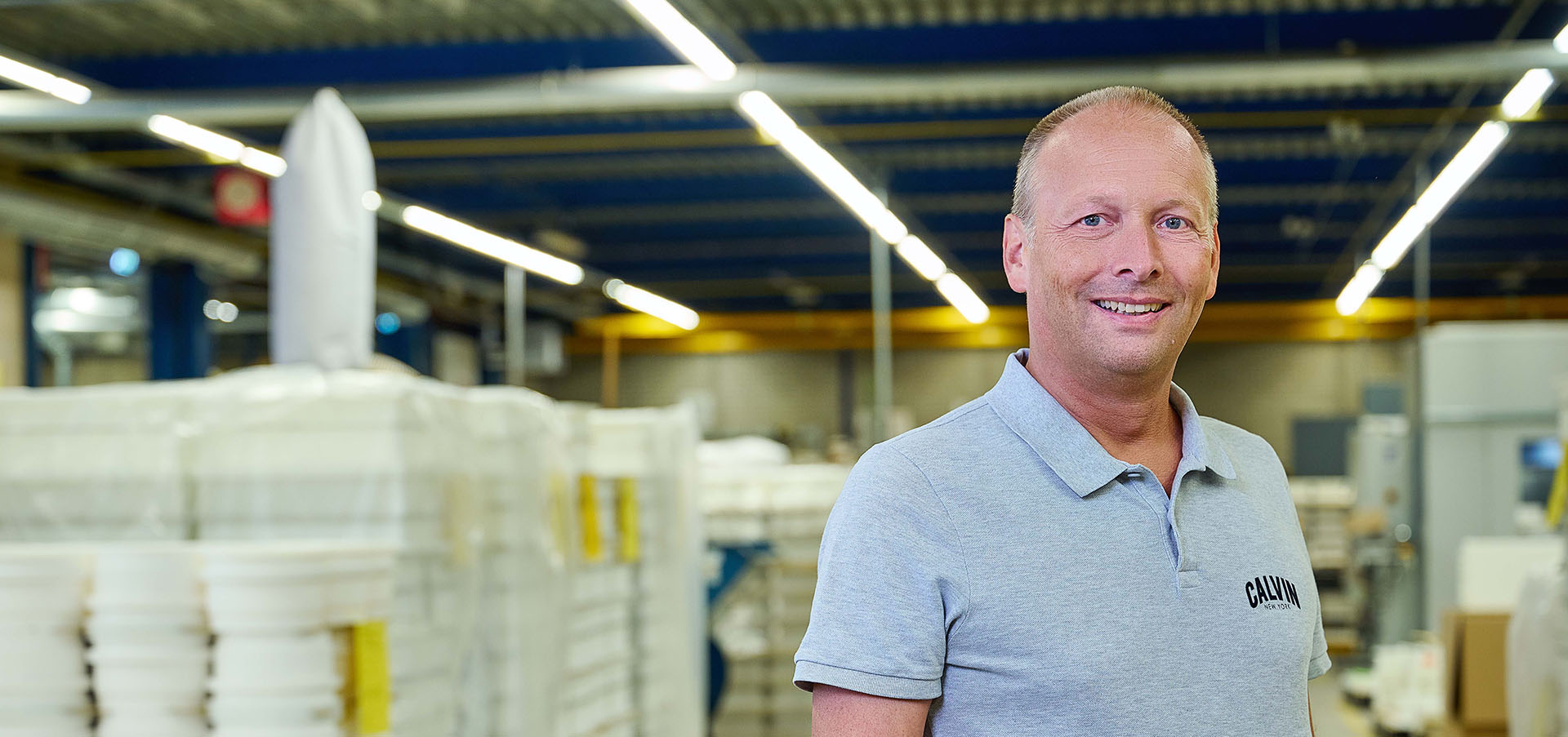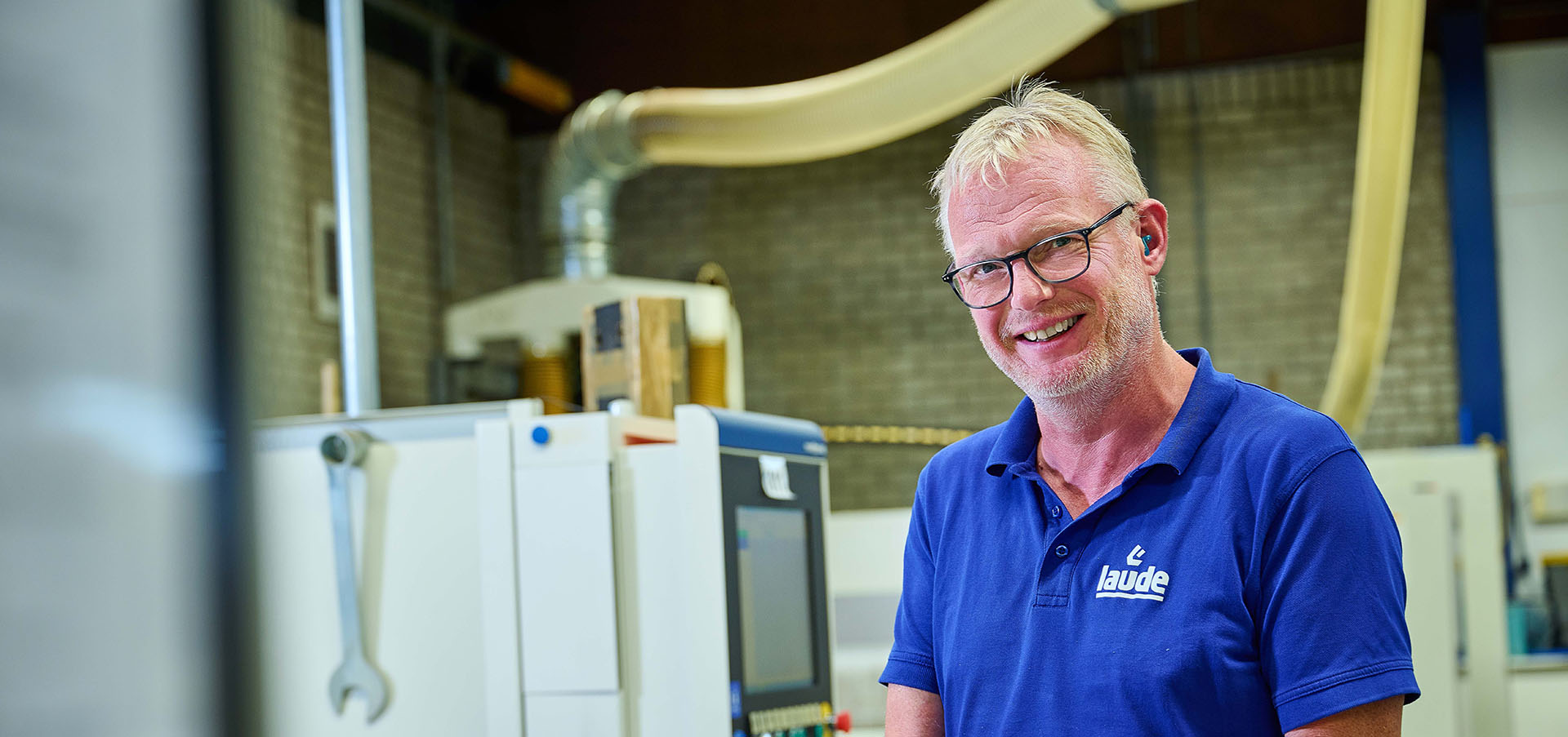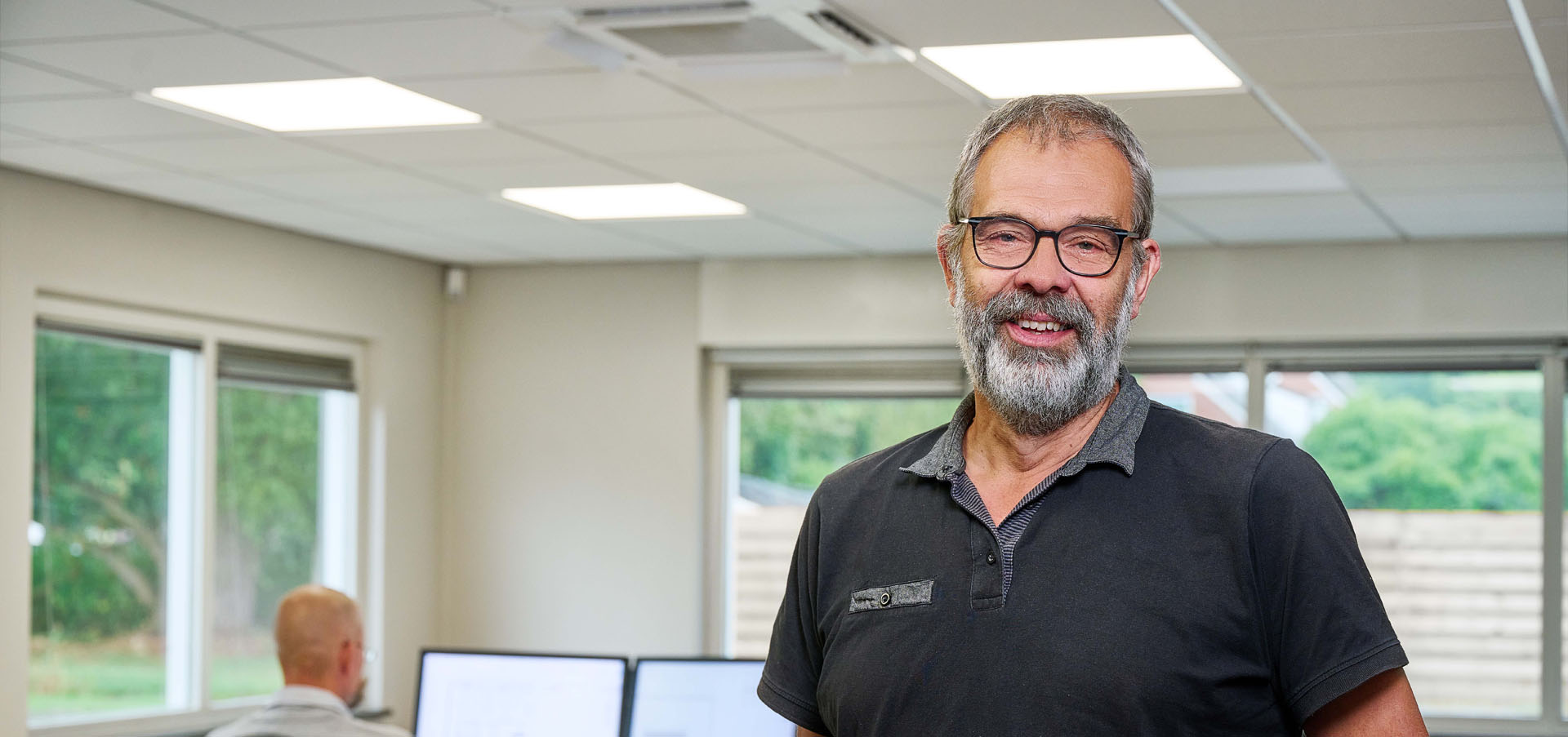60 years of laude with R&D
Through the lens of R&D.
60 years of Laude. Now that’s a milestone to be proud of. You really get to know a company by talking to its employees, and so we did exactly that. We talked to Laude’s people. We spoke to Jan Mulder and Germen Gijlers about the R&D department, where they both work. They discussed the company and their experiences and came up with special anecdotes.
No one-hit wonders
At 60 years old, Laude is certainly no one-hit wonder. The same applies to many of its employees who have been working there for a long time. Jan is one of those people. He joined Laude 25 years ago, back in 1997, as a Production Manager and is now Director of Business Development in the Sales department. He combines his sales position with his R&D work, as head of R&D. Germen is an R&D Engineer and has 'only' worked for Laude for six years. He works on internal projects, for production, and external jobs that often arise from customer requests.
In the beginning...
There was no Research and Development department – at least not when Jan joined the company. ‘Laude presented itself as an innovative company, always keeping track of the market and new developments. I noticed that there was no department specifically dedicated to that,’ he says. Back then, project teams took care of research and development. A salesperson – usually with someone from Production or Engineering – discussed new ideas.
Normal work continued as usual, so little actually came of the plans. Jan suggested setting up an R&D department in order to give a set structure to the process: ‘We had the capacity, so all we had to do was organise a few things. That gave the development of the production process and manufacturing a huge boost.’
For internal and external use
The department focuses on both internal and external processes. ‘We have a lot of machines and processes that we have come up with ourselves. That was essential because our production process is very specific. A good example is the robot that microperforates small holes in the cheese moulds made from high-quality plastic,’ Germen says. ‘You can’t buy those machines, so we make them ourselves,’ adds Jan.
‘An example of a customer-oriented development is fusing cloth to the mould and lid, for making cheese in a traditional way. If that is successful, then we can develop it like a production machine. Then it will become an interesting option again internally,’ Germen says.
Special developments
When asked about highlights of their time at Laude, both men had plenty to say. Jan: ‘A new welding machine and an integral ERP system were commissioned in 2004 and 2005. We used to do order processing and planning by hand, but now it's embedded in a system. The internal logistics process is very important.’
Germen: ‘Due to my position, I reflect on projects much more deeply. I enjoy projects that really contribute something. A good example is the perforation robot cell – we worked on that project for over 2.5 years. First, we thought up and plotted everything. Then we produced a prototype of the first puncture arm, which makes holes in plastic. We used that prototype for the initial testing round.’
Interaction between person and machine
‘It's a great feeling when you know you have contributed to a project that eventually produces a working situation. Especially when I think about the struggles and teething problems we faced. Initially, we had a machine that could perforate three cheese vats at the same time. A robot took one vat and started pre-processing it. Then another robot perforated the vat. An operator had to be present at all times to monitor the needles. When a needle broke, they had to replace it manually,’ Germen says.
In the current situation, the robots take on more tasks, allowing employees to focus on other work. The cell contains four robots. The first one grabs a vat from a conveyor belt, performs an operation and passes the vat to the next robot. ‘The machine now checks the needles itself,’ Germen adds.
Group trip to London
There’s also enough time for relaxation. ‘When Laude celebrated its 50th anniversary, we all went on a trip to London together,’ says Jan. ‘It was wonderful. The entire team and their partners all took the ferry from Hoek van Holland. We had great food, went on the London Eye and saw the musical We Will Rock You. The whole trip was perfect.’
‘That was before my time, unfortunately,’ Germen says. ‘What I can tell you is that we have a pretty active staff association. We celebrate together at specific times of year, such as before the summer holidays and Christmas holidays. We put them in our agendas well in advance. We also have a barbecue a week before the construction industry holidays.’ Jan adds: ‘At Christmas, we always eat traditional Dutch dishes such as hutspot and boerenkool.’
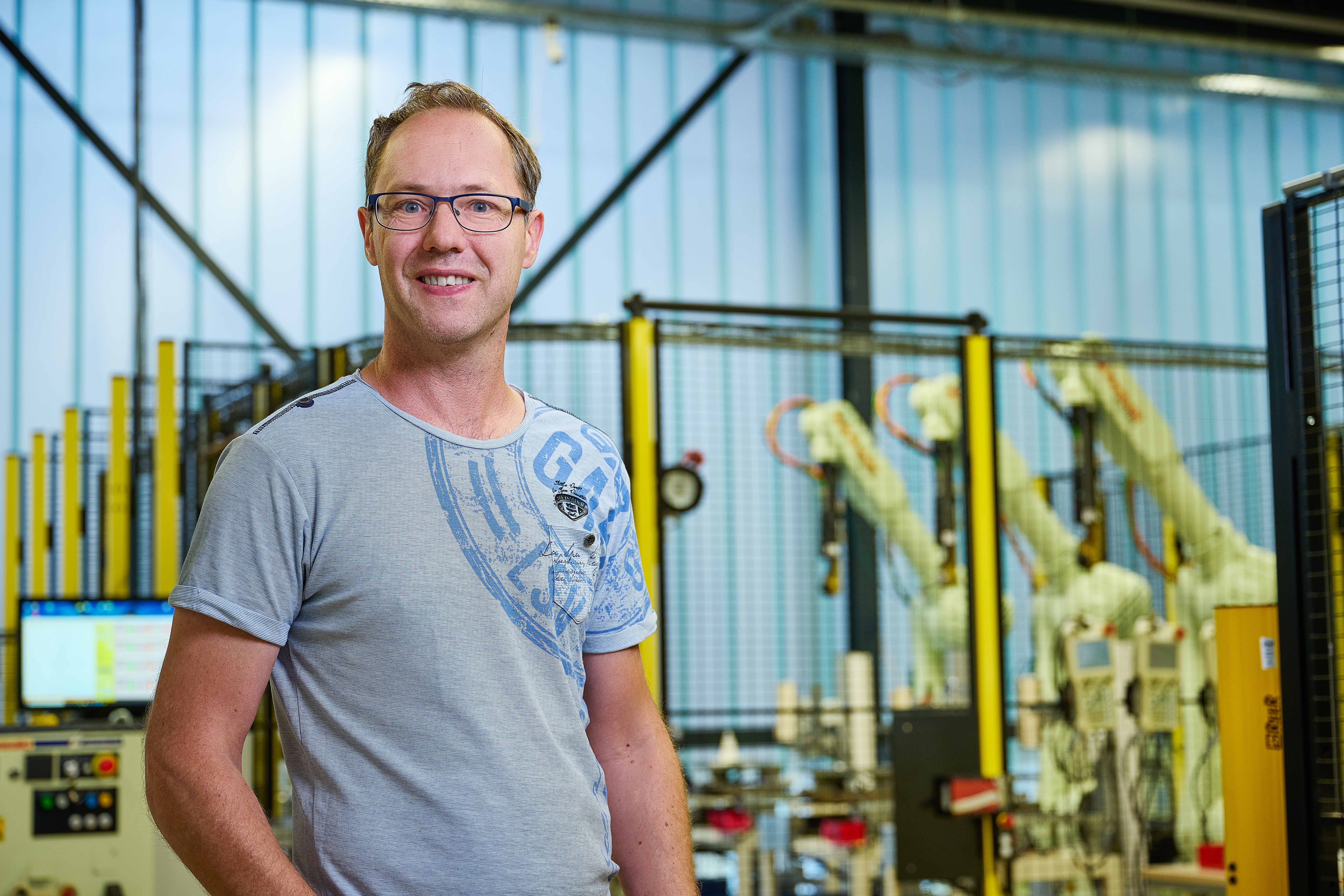 Germen Gijlers
Germen Gijlers
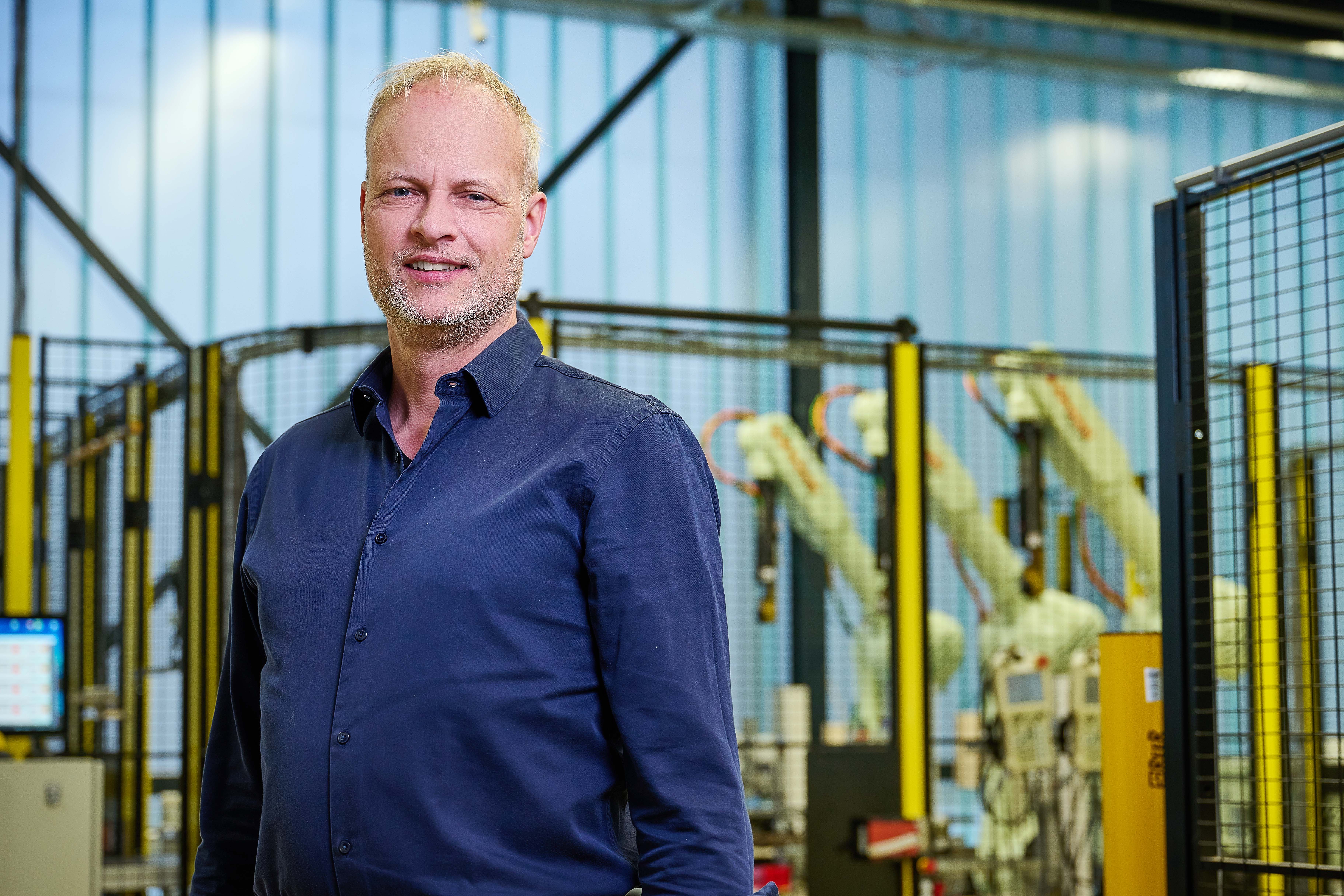 Jan K. Mulder
Jan K. Mulder
Looking ahead
Jan and Germen say that the future is very bright. Jan: ‘We are working on initial orders for products that are unrelated to cheese: moulds for manufacturing meat substitutes. There has been a sharp increase in demand for meat substitutes, so this development could well take off.’
Germen continues: ‘We can actually achieve a lot using our own technology. We can add texture to plastic, make small holes and supply very clean moulds. For that reason, we are also working on products for manufacturing vegan cheese. In addition, we are trying to reduce our waste and recycle more. Production waste is already effectively extracted, discarded and returned to our plastic supplier for reuse. It would be better if we could use the waste ourselves to produce parts, for example.’
Jan and Germen clearly enjoy working for Laude. If it’s up to them, they’re planning to stay at Laude for many years.
Back to list
